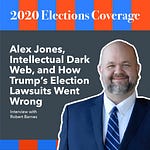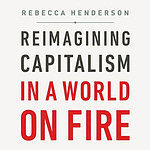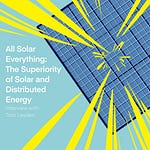How did the Indian-Americans vote in the 2020 Presidential Elections? Was the nomination of Kamala Harris a decisive factor? How different will India-US ties be in a Biden administration? How did the Narendra Modi administration in India handle the COVID-19 pandemic? What are some of the most grave challenges being confronted by the Indian democractic system? In this episode, we explore all these fascinating questions with one of the most well-reputed political economists of India – Dr. Milan Vaishnav, a Senior Fellow and the director of the South Asia Program at the Carnegie Endowment for International Peace in Washington D.C. His primary research focuses on issues such as corruption and governance, state capacity, distributive politics, and electoral behavior. He is the author of the book "When Crime Pays: Money and Muscle in Indian Politics" and is the host of the podcast "Grand Tamasha." Being an Indian-American himself, Dr. Vaishnav offers unique insights into the electoral behaviour of the Indian-Americans, a group that became visibly more important in the elections this year. We begin the interview with unpacking the Indian-American vote in the 2020 Elections. Dr. Vaishnav explains the results of the India-Americans Attitude Survey, a survey conducted by Dr. Vaishnav and his colleagues to understand the electoral behaviour and preferences of the India-American voters. The survey, one the only ones that focuses on the Indian-Ameican community, revealed that much like other voters, Indian-Americans care about basic domestic issues - economy and healthcare. At the same time, the state of India-US relations was an insignificant factor in determining their electoral choice. Countering the general perception of Indian-Americans being overwhelmingly supportive of Trump and the Republiucan Party, Dr. Vaishnav argues that the community is predominantly Democratic. He highlights that the Trump-Modi bonhomie did not cause a shift in the choices of the Indian-Americans. Talking about the state of the India-US ties, Dr. Vaishnav emphasized that under the Trump administration, the security and diplomatic cooperation between the two nations was tremendously expanded, while the economic cooperation remained stagnant. A Biden administration is expected to continue the growing security partnership, one that surely will be invigorated with the presence of an Indian-American Vice President. Dr. Vaishnav also delves deep into the successes of the Modi administration in handling the pandemic, amid growing concerns about the state of the Indian economy. He also sheds light on one of the most intriguing questions for Indian political economists: Why is Modi so popular despite widespread concerns over the Indian economy and its sovereignty? We hope that you enjoy listening to an interview about a country and a community that continues to fascinate and intrigue many. It is our hope that through these series of interviews, we continue to demystify India, Indian-Americans, and the 2020 Elections for our listeners!
1×
0:00
Current time: 0:00 / Total time: -57:44
-57:44













Share this post